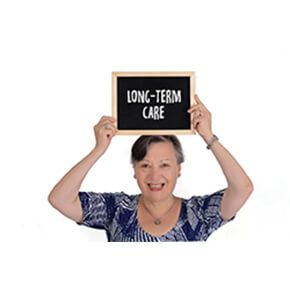
Ensuring Your Long-Term Care Policy Is Tax-Qualified
A long-term care insurance policy supplements your traditional health insurance by covering services that assist you or a loved one with one or more activities of daily living. Such activities include eating, bathing, dressing, toileting and transferring (in and out of bed, for example).
Long-term care coverage is relatively expensive, but it may be possible to reduce the cost by purchasing a tax-qualified policy. Generally, benefits paid in accordance with a policy are tax-free. In addition, if a policy is tax-qualified, your premiums are deductible (as medical expenses) up to a specified limit if you qualify.
To qualify, a policy must:
- Be guaranteed renewable and noncancelable regardless of health,
- Not delay coverage of pre-existing conditions more than six months,
- Not condition eligibility on prior hospitalization,
- Not exclude coverage based on a diagnosis of Alzheimer’s disease, dementia, or similar conditions or illnesses, and
- Require a physician’s certification that you’re either unable to perform at least two of six ADLs or you have a severe cognitive impairment and that this condition has lasted or is expected to last at least 90 days.
It’s important to weigh the pros and cons of tax-qualified policies. The primary advantage is the premium deduction. But keep in mind that medical expenses are deductible only if you itemize and only to the extent they exceed 10% of your adjusted gross income for 2019, so some people don’t have enough medical expenses to benefit from this advantage. It’s also important to weigh any potential tax benefits against the advantages of nonqualified policies, which may have less stringent eligibility requirements.
